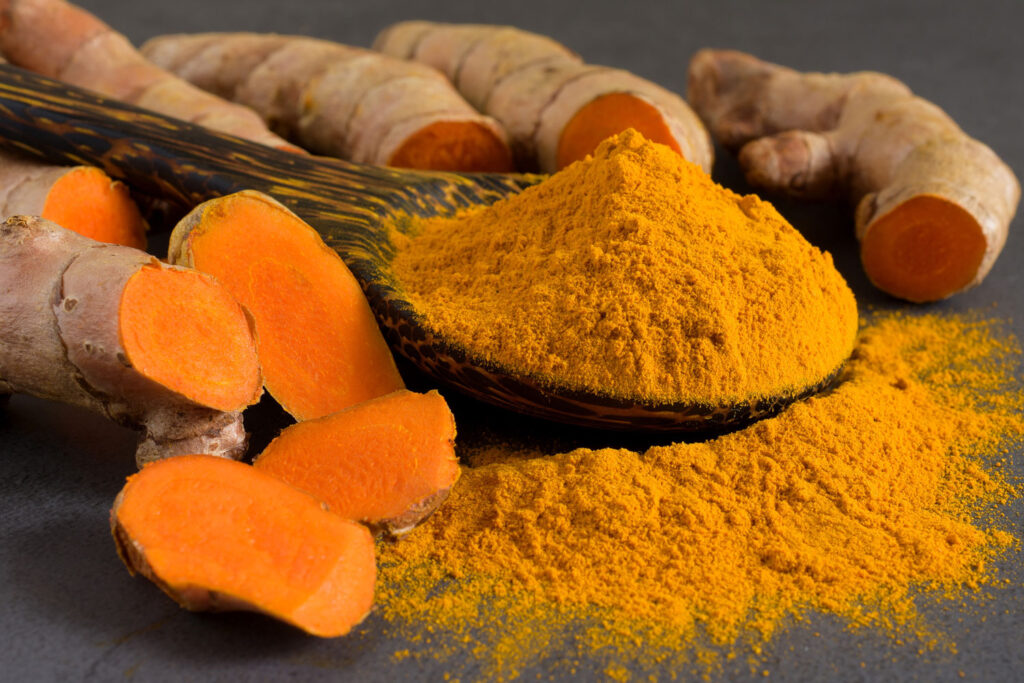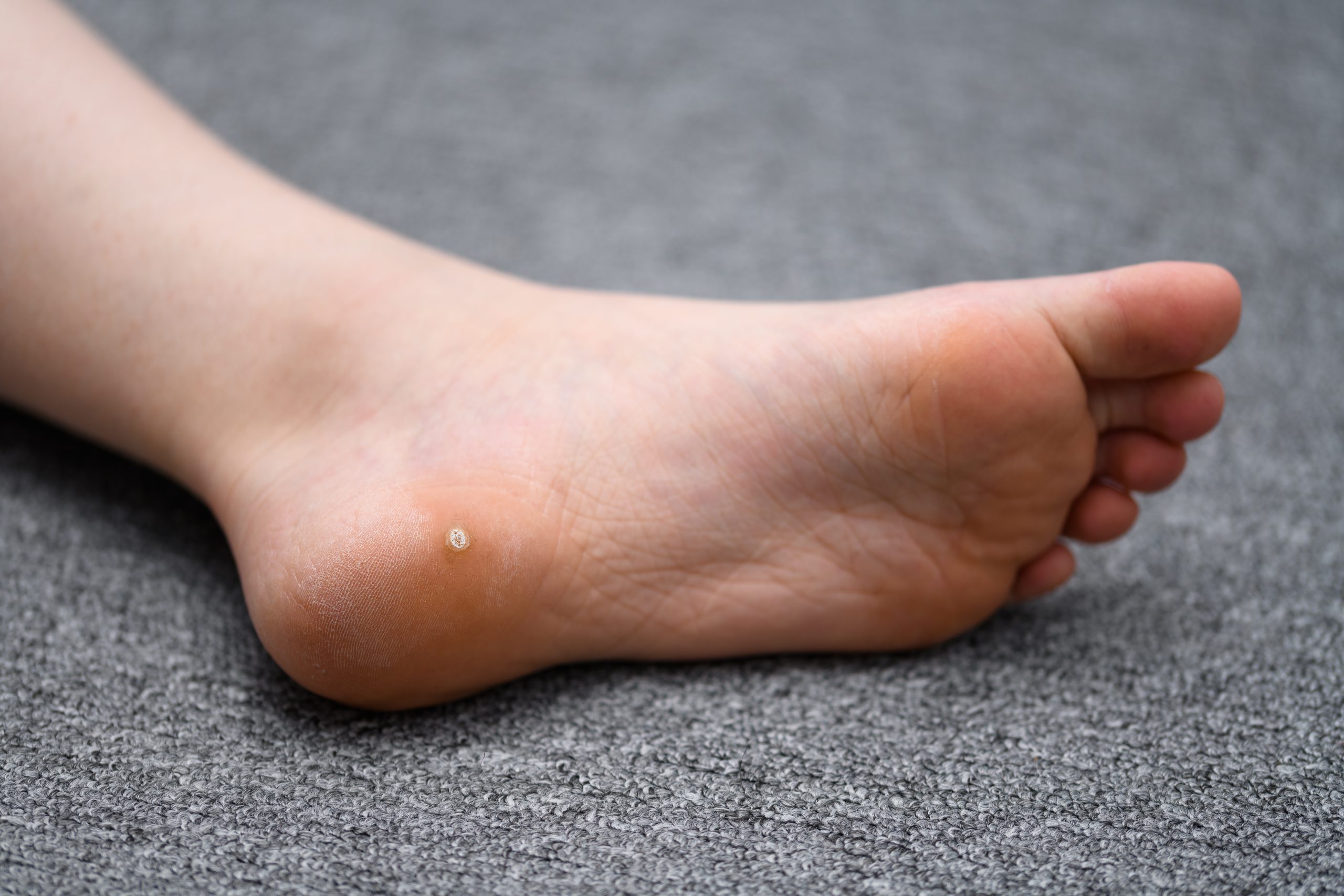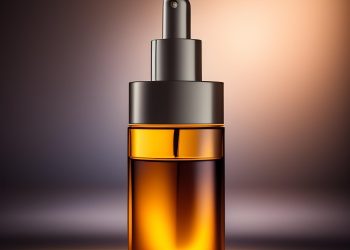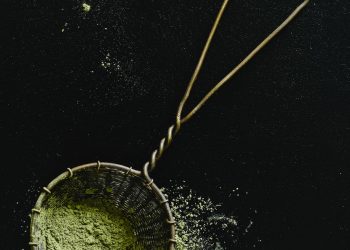Have you ever found yourself making a high-pitched, whistling sound while you breathe?
This whistling sound actually indicates a health problem, and is known as wheezing!
Wheezing refers to the noisy whistling sound that you hear when you inhale or exhale [1].
It is one of the most common symptoms of asthma, a condition characterized by an obstruction of the airways and difficulty in breathing [1, 2].
Other symptoms of asthma include coughing particularly at night, chest tightness, and shortness of breath.
It’s better to know some home remedies for asthma wheezing to tackle this difficult condition.
Asthma is a serious condition that requires medical attention, and should be addressed immediately.
If your condition is critical, it’s better to go and consult the doctor for appropriate medical treatment.
Also, in the meantime, you can get easy but temporary relief using these home remedies.
So, in the following article, we will read about:
- What causes wheezing in asthma?
- 17 simple natural remedies for asthma wheezing
- How to use these remedies for best results?
RELATED: 13 Easy Ways to Get Rid of Phlegm
What Causes Wheezing?
Many patients describe wheezing as high-pitched, coarse whistling sound that occurs when a person is breathing, some describe it as difficulty in breathing, and some say it as rattling secretions in the throat.
No matter what the description is, wheezing result from localized or diffuse airway narrowing or obstruction from the level of the larynx to the small bronchi.
In simpler terms, inflammation and narrowing of the airway from your throat out into the lungs can lead to wheezing [3].
Apart from inflammation and narrowing of the airway, several other factors can lead to wheezing such as:
- Allergies
- Asthma
- Emphysema
- Bronchiolitis
- Heart failure
- Gastroesophageal reflux disease (GERD)
- Lung cancer
- Chronic obstructive pulmonary disease (COPD)
- Medications such as aspirin
- Smoking
- Vocal cord dysfunction
- Pneumonia
- Sleep apnea
- Respiratory syncytial virus (RSV)
All these factors can lead to wheezing. However, the most common cause of wheezing includes asthma and chronic obstructive pulmonary disease (COPD) [3].
How Is an Asthma Attack Different Than Just Wheezing?
Wheezing and an asthma attack are two very different things.
When your lungs become contracted or narrow, it makes it difficult for you to breath, leading to the whistling sound while you breathe out.
Asthma, on the other hand, occurs when the tiny airways becomes swollen and tightened due to excess mucus produced, making it very hard for a person to breath [3].
Thus, wheezing is just one of the symptoms of asthma, whereas asthma is a respiratory disease.
Now let’s read about some of the highly recommended home remedies for treating asthma wheezing.
18 Simple Natural Remedies for Asthma Wheezing
Home remedies are natural, safe and effective for wheezing as they tent to open up the airways and helps to treat the underlying causes of wheezing.
Some of the most effective home remedies for asthma wheezing are listed below:
1. St. John’s Wort
Scientific findings validate St. John’s wort pharmacological properties, including its antibacterial and antiviral activities [4].
Most of its benefits for the health can be attributed to a compound called hypericin, along with some flavonoids [4].
St. John’s wort has also been found to be a reliable solution for asthma wheezing.
This herb works as a bronchodilator, relaxing the lung muscles and widening the bronchial tubes to make it easier for a person who has asthma to breathe [5, 6].
These mechanisms make this herb a viable treatment not only for respiratory ailments such as bronchitis and asthma but also for conditions characterized by an overactive gut [6].
It also helps that St. John’s wort has anxiolytic effects, as these can come in handy when you’re finding it hard to breathe.
As you know, difficulty in breathing can shoot up stress levels, and high stress can make it even more difficult for you to breathe.
This herb can be used to break this vicious cycle, and induce relaxation you need to feel better.
What You’ll Need:
- One teaspoon of dried St. John’s Wort
- 1 cup of hot water
Recommended Directions:
- Steep St. John’s wort in hot water for 10 minutes.
- Drink this tea twice a day for one to two weeks.
2. Honey
Historical records show that honey was used for its therapeutic purposes since the ancient times in Rome and Greece [7].
One of its many health benefits is a remedy for wheezing caused by asthma.
A study conducted in the National Ribat University in Sudan reports that out of 30 asthmatic patients who participated, those who received honey and black seed for three months had a significant reduction in asthmatic wheezing [8].
The use of these natural remedies also reduced other unpleasant symptoms that are common in asthmatic patients [8].
With its anti-allergy and anti-inflammatory properties, honey is considered a “cheap and safe” natural approach for treating respiratory problems including asthma [8].
It works not only on mild to moderate cases but also for the severe and persistent condition [8].
Honey also works effectively when combined with coffee, according to a 2013 study [9].
This study, conducted for four years, assessed the efficacy of three treatment methods designed to alleviate upper respiratory infections [9].
Out of the 97 adults with an infectious cough, patients who were given a combination of honey and coffee, recovered more quickly than the other groups [9].
What You’ll Need:
- One teaspoon of honey
- One glass of hot water
Recommended Directions:
- Stir in honey into hot water.
- Drink slowly.
- Repeat three times a day until symptoms improve.
RELATED: How to Use Honey and Cinnamon for Cold
3. Garlic
The chemical composition of garlic has been the subject of numerous scientific explorations, as researchers are keen to discover what makes up this herb that’s been used for years as a potent remedy.
It’s interesting to know that garlic has been used since the ancient times in Egypt to boost the health and stamina of the working class carrying out heavy labor [10].
Today, it remains widely used for treating a wide range of ailments, including asthma.
Garlic has been proven to be an effective decongestant and expectorant, relieving wheezing and other symptoms in asthmatic patients [11].
Other respiratory conditions that it can alleviate are sinusitis, rhinitis, pharyngitis, cough, chest infections, tuberculosis, and chest congestion [11].
Whatever respiratory problem is bothering you, using garlic can provide temporary yet significant relief from distressing symptoms.
This herb, being loaded with nutrients and antioxidants, does relieve not only your condition but also strengthens your immune defense against other diseases.
What You’ll Need:
- Four cloves of garlic
- 1 cup of water
Recommended Directions:
- Crush garlic cloves, and boil in water.
- Drink concoction twice a day for three to four days.
RELATED: 10 Essential Oils for Sinus Infection, Congestion, & Headaches
4. Ginger
For centuries, ginger has been a popular natural treatment for various respiratory ailments [12].
In Iran, a team of scientists probed the effects of ginger on asthmatic patients [13].
For two months, half of the 92 patients were given 150 mg ginger every eight hours while the other half received a placebo [13].
Some studies found that this herbal remedy worked in reducing asthma symptoms including wheezing, chest tightness and coughing [13].
In fact, ginger relieved wheezing in almost 20 percent of the patients, and reduced chest tightness in more than half of the participants [13].
With their conditions significantly improved, patients not only felt better but also were able to get better quality sleep at night [13].
Its efficacy as an anti-asthma is attributable to its ability to relax the muscles in the airways, reduce airway contractions, and clear it from obstruction [14, 15, 16].
These actions may be due to the presence of gingerol and other chemical constituents in ginger [17].
What You’ll Need:
- One teaspoon of grated ginger
- 1 1/2 cups of water
Recommended Directions:
- Boil water in a pot.
- Add ginger.
- Remove from heat.
- Strain the mixture.
- Drink the tea every night before sleeping.
RELATED: 20 Great Ways Of Using Ginger To Fight Your Acne
5. Turmeric
Turmeric is a widely used spice in Indonesia, India and other countries in Southeast Asia [18].
Its fame is not only due to its strong flavor and aroma but also to its various purposes as a traditional medicine [18].
It has long been used to treat different types of respiratory ailments, including asthma [19].
In a clinical trial performed by Indian researchers in 2014, 77 patients were given either 500 mg of curcumin daily or placebo [20].
Patients were assessed for symptoms including chest congestion, difficulty in breathing, coughing, and wheezing [20].
Results show that curcumin in turmeric alleviated these symptoms in mild to moderate asthma cases [20].
The 30-day treatment led to the improvement of the airway obstruction [20].
Researchers also noted the absence of any adverse effects after the use of this herbal remedy, which indicates that it’s also safe [20].
What You’ll Need:
- One teaspoon of turmeric powder
- One glass of water
Recommended Directions:
- In a pot, boil water.
- Remove from heat.
- Stir in turmeric powder until it dissolves.
- Drink the concoction once a day for three to four days.
6.Ginkgo Biloba
Empirical studies serve as evidence to gingko biloba’s various pharmacological effects [21].
It has played an important role in treating dementia and Alzheimer’s disease, preventing stroke, slowing down aging, and neutralizing free radical damage in the body [21].
This herbal remedy which is one of the most frequently used in Europe also reduces inflammation in the airways with its chemical compound ginkgolide [22].
A study has also found it to have protective effects against bronchospasm caused by strenuous physical activity, and allergic reactions to dust mites, both of which could lead to asthma and wheezing [22].
This means that you can use gingko biloba as either preventive measure or treatment for exercise-induced asthma and also for asthma caused by dust mites [22].
What You’ll Need:
- One teaspoon of dried gingko biloba leaves
- 1 cup of water
Recommended Directions:
- Boil water in a pot.
- Add gingko biloba leaves.
- Remove from heat.
- Let it steep for 10 minutes.
- Strain the leaves.
- Drink the tea once a day for up to one week.
7. Eucalyptus Oil
Eucalyptus oil has many properties that can help in curing asthma.
It reduces inflammation in the airways, smoothens the bronchial muscles, and boosts the immune system [23].
Moreover, it’s a powerful antimicrobial that fights Staphylococcus aureus along with other viruses and fungi that can cause allergic reactions and asthma [23].
Eucalyptol, the main active compound in eucalyptus, has been found effective as a mucolytic for asthma and other lower respiratory diseases [24].
As a mucolytic, eucalyptol works by thinning and expelling the mucus, which clogs the airways and makes it difficult to breathe [24].
The cooling and soothing effects of this oil can also help you relax and make you less worried about your condition.
This is important, as stress only aggravates the asthmatic condition.
What You’ll Need:
- A bowl of hot water
- Five drops of eucalyptus oil
Recommended Directions:
- Pour oil into the water.
- Inhale the steam.
- Repeat as needed for three to four days.
8. Coffee
It’s easy to associate coffee with energy boost because that’s what most people know about this beverage.
Did you know that a cup of coffee can also be a boon for those suffering from asthmatic wheezing?
Yes, coffee is one of the easiest remedies for asthma wheezing.
Many studies confirm that caffeine in coffee has bronchodilator effects [25, 26, 27, 28, 29, 30].
A survey involving more than 70,000 asthmatic patients shows that long-term consumption of coffee not only reduces asthma symptoms but also prevents the “clinical manifestation of bronchial asthma” [25].
In another study, 23 asthmatic patients ages 8 to 18 years were given either caffeine or theophylline [26].
Theophylline is a bronchodilator drug used to treat wheezing, breathlessness and coughing in asthmatic patients [26].
After six hours, it was observed that caffeine worked just as effectively as the medication in reducing airway obstruction and clearing congestion [26].
Scientists conclude that caffeine’s anti-asthma effects are similar to theophylline [27].
What You’ll Need:
- 1 to 2 cups of coffee
Recommended Directions:
- Drink coffee every day until you get relief from wheezing.
- Do not drink more than three cups a day.
9. Licorice Root
Licorice root is commonly used for treating allergic diseases and inflammatory disorders [28].
It’s one of the complementary remedies for asthma that were tested in a study published in the Clinical Biochemistry Journal [29].
A total of 63 patients diagnosed with bronchial asthma were given either licorice in the form of an oral capsule or a placebo [29].
These patients received treatment three times a day for four weeks [29].
Researchers found that it is a natural inhibitor of leukotriene and nitric oxide [29].
These mechanisms along with its anti-inflammatory actions make it a suitable treatment for asthma and its symptoms [29].
And not only does licorice root minimize the symptoms, but it also improved pulmonary function [29].
A 2006 study demonstrates that its glycyrrhizin reduces the severity of asthmatic features [30].
It worked by reducing constriction, hyperreactivity, and inflammation of the airways [30].
What You’ll Need:
- One teaspoon of dried licorice root
- 1 cup of water
Recommended Directions:
- Boil water in a pot.
- Remove from heat.
- Add dried licorice root.
- Steep for 20 minutes.
- Strain the mixture.
- Drink the tea several times a day for one to two weeks.
10. Onion
Onion belongs to the same family as garlic, so it doesn’t come as a surprise that the two have similar medicinal value.
In Ayurvedic medicine, onion is used for reducing inflammation and alleviating allergies just like garlic [31].
Its potential as an anti-inflammatory and antihistaminic agent makes it a practical remedy for asthma and wheezing [31].
Research has proved that onion is a useful and safe natural treatment for this bronchial problem [32].
In a study published in the European Journal of Pharmacology, it was shown oral intake and inhalation of onion extract improved conditions of guinea pigs induced with allergens [32].
What You’ll Need:
- One teaspoon of honey
- One teaspoon onions, chopped
Recommended Directions:
- Put ingredients in a glass jar.
- Chill in the refrigerator for 24 hours.
- The next day, strain the onions.
- Take one teaspoon of the solution.
- Do this every day until asthma subsides.
11. Mustard Oil
When you’re having an asthma attack, you can turn to mustard oil for relief.
Massaging your chest with mustard oil is believed to be helpful in alleviating chest congestion, clearing the airways, and restoring comfortable breathing.
Its safety and efficacy as a treatment for asthma and other respiratory ailments should further be investigated.
However, there’s one study that points out that mustard oil has strong anti-inflammatory effects that can help in situations when a patient suffers from asthmatic wheezing and shortness of breath [33].
What You’ll Need:
- One teaspoon of mustard oil
- 1/2 teaspoon of camphor
Recommended Directions:
- Combine these ingredients in a pan.
- Warm the mixture for a few seconds.
- When the temperature is just right for topical application, apply a thin layer on chest and upper back.
- Massage gently for a few minutes.
- Repeat this remedy two to three times a day until you feel better.
RELATED: 18 Essential Oils for Sore Throat and How to Use Them
12. Ginseng
Chronic obstructive pulmonary disease (COPD) is a serious respiratory problem that can also cause wheezing.
Moreover, one of the more efficient ways to relieve this condition is through the use of ginseng.
In 2014, a group of scientists from Australia analyzed its effects on patients with COPD [34].
It was uncovered that the ginsenosides in ginseng have anti-inflammatory effects as well as inhibitory effects on oxidative stress [34].
Ginseng has been found to inhibit processes in the respiratory tract that are related to the development and progress of COPD [34].
What You’ll Need:
- One teaspoon of ginseng extract
- 2 cups of water
Recommended Directions:
- Put water in a pot and bring to a boil.
- Add ginseng extract.
- Remove from the stove.
- Transfer mixture to a cup.
- Consume mixture once a day for one week to stop wheezing naturally.
Indeed, ginseng can prove to be a great item for the relief of asthma symptoms like asthma wheezing.
13. Figs
The uses and benefits of figs as foods and medicine dates back to 5000 year B.C. in Neolithic civilizations. In the Bible, figs are mentioned as a sign of peace and prosperity. Figs are native to the Mediterranean region and later on spread to the west, Asia, and China. [35]
Fig tree belongs to the mulberry family. There are multiple varieties exotic fruit figs. The sweet, and juicy figs store hundreds of seeds inside them. As a result, they are superbly crunchy.
Figs are superfoods. They are a rich source of fiber; essential minerals such as calcium, magnesium, potassium, manganese, copper, zinc, iron; and vitamins A, B6 and K. [35]
These beneficial nutrients can heal the inflammations and sores in the respiratory tract. Figs help in draining out the excess mucus from the airways and relieve pain and stress from the vocal cords. [36]
Moreover, the powerful antioxidants in figs can boost your immune defense to prevent asthma symptoms such as asthma wheezing. [36]
What You’ll Need:
- 4-5 dried figs
- 1 cup of water
Recommended Directions:
- Soak the dried figs in the water overnight.
- Eat the soaked figs first thing in the morning.
- Consume the water as well.
- Repeat the process daily until you bring the wheezing in control.
14. Salt Water Gargle
A salt water gargle is one of the simplest ways to relieve asthma wheezing. Salt water gargle is a popular way to cleanse the respiratory system. [37]
Salt water is termed as a master cleansing agent because it can release toxins, help adrenal gland function, muscle contraction, nerve stimulation, balance pH and water level and eliminate the harmful bacteria or toxins from the body. [37]
Saltwater can eliminate the excess mucus or phlegm from the air passages.
Thus, salt water gargling can be an effective way to prevent wheezing or coughing during an asthma attack.
Let’s learn this simple remedy below.
What You’ll Need:
- ½ teaspoon of salt
- 1 cup of warm water
Recommended Directions:
- Dilute salt completely in the warm water
- Now gargle with the solution for 30 seconds to a minute.
- Repeat the process multiple times a day to prevent wheezing and coughing.
15. Fenugreek Seeds
The bitter flavored fenugreek seeds come from the annual herb fenugreek. The light green leafy herb produces white blossoms as well. This medicinal herb is a part of the pea or Fabaceae family. [38]
From ancient time on fenugreek seeds are popularly used in medicinal practices of Ayurveda and Unani.
The aromatic seeds possess a long list of therapeutic values. Fenugreek seeds are rich in antioxidants, antibacterial, and anti-inflammatory properties. [38]
That’s why you can use fenugreek seeds in combination with honey and ginger to
Prevent asthma wheezing.
What You’ll Need:
- Two tablespoons of fenugreek seeds
- Two tablespoons ginger juice
- One teaspoon of honey
- 1 liter of drinking water
Recommended Directions:
- Soak fenugreek seeds in water and leave it for 2 hours.
- Now, strain the water and mix ginger juice and honey with it.
- Drink this magic potion daily to stop wheezing.
RELATED: 14 Benefits of Fenugreek for Your Health (Backed by Science)
16. Lemon Juice
Lemon juice is another simple but effective remedy for asthma wheezing. Lemon with all its vital nutrients is a natural decongestant as well.
Lemon juice can break down the accumulated phlegm or mucous on the air passages and relieve your respiratory tracts. Thus, a warm lemon drink can provide you with much-needed ease during asthma wheezing.
What You’ll Need:
- Two tablespoons of fresh lemon juice
- Warm water
Recommended Directions:
- Squeeze lemon and obtain fresh juice in a glass.
- Now add warm water to it and stir.
- Consume the lemon drink every morning and before every meal.
- Repeat the treatment to keep your asthma wheezing under control.
RELATED: Lemon Juice for Acne : 8 Simple Home Remedies
17. Sesame Oil
Sesame oil comes from sesame seeds and is a very popular vegetable oil in Asia. The edible oil has a strong nutty aroma. People have been using sesame seeds for therapeutic purposes for a long time. Sesame oil is as effective as mustard oil in relieving the symptoms of asthma wheezing.
What You’ll Need:
- One tablespoon of Sesame oil
- ½ tablespoon of mustard oil
- A pinch of powdered camphor
Recommended Directions:
- Mix both the oil and add camphor to the solution.
- Now apply the mixture on your chest and back and gently massage for 15-20 minutes.
- Repeat the treatment every night or twice daily to get rid of asthma wheezing naturally.
RELATED: Canola vs. Vegetable Oil: Which One Will You Choose?
18. Flax Seeds
Flax seeds are known as linseeds that are packed with loads of vitamins, minerals, antioxidants, micronutrients and even healthy cholesterol!
You can just munch on these seeds as it is without having to boil it or cook it, to obtain omega-3 fatty acids, alpha-linolenic acid, and lignans.
One of the most highly beneficial health problems that flax seeds provide is in treating wheezing.
The active compounds in flax seeds contain anti-inflammatory properties that help to treat asthma wheezing, and is even good throat muscles.
What You’ll Need:
- A teaspoon of flax seeds
Recommended Directions:
- Take a teaspoon of flax seeds and munch it as it is not to lose any of its nutritional value.
- Have flax seeds twice or thrice a day for effective results.
Some Q & A About Wheezing
When should I get medical help if I am wheezing?
Wheezing, although, generally, not that serious, can become serious at certain times. You should OBVIOUSLY seek medical help if the following conditions are affecting you in addition to wheezing.
- This is your first attack of wheezing, for the first time.
- Shortness of breath, bluish tint on your skin, feeling confused.
- You cannot explain why you are wheezing in the first place.
- You have started wheezing as a severe allergic response to anything like a bee sting or any certain medication.
What are some healthy measures that I can take at home to reduce wheezing?
There are multiple measures that you can take to reduce the chances of wheezing. For example, you can bring the following changes in your home to reduce wheezing entirely. They are:
- Doing a regular damp dusting of your home and also keeping the clutter or curtains down. This can reduce house dust mite.
- Removing a carpet if there is one. Carpets tend to accumulate dust over time, and so that is a problem.
- Always keeping the windows open when you are showering or taking a bath or cooking. By doing this, you will be preventing mold spores to accumulate in your home through dampness and condensation.
- Checking clothing to see if there are pollen grains on them and then removing them.
- Always change your clothes when you come from outdoors.
- Using an air purifier indoors during the dry and dust season.
What medication would be best to relieve symptomatic wheezing in a patient who has asthma?
if you have moderate asthma, then you could use fluticasone bid, theophylline, or tiotropium. However, these medications should only be used under the prescription of a doctor.
When is wheezing a symptom of asthma?
You must remember that wheezing is never normal and not all wheezing indicates asthma since conditions like COPD, pneumonia, or certain vocal cord problems can also lead to wheezing. However, wheezing can be a symptom of asthma when its combined with swelling, mucus, and muscles tightening.
What might increase the risk of my child developing asthma wheezing?
If you have a family history of people who have asthma and wheezing, then there’s a high possibility of your child developing asthma and wheezing as well as asthma involves a complex interaction between genes and the environment.
In fact, maternal allergy and asthma increase the risk of wheezing development in a child. Also, exposure of tobacco smoke can increase the risk of wheezing so make sure to avoid it during pregnancy and even after birth.
Bottom Line
Wheezing is one of the most common symptoms of asthma. Wheezing can also occur due to other reasons as well.
You should not ignore it, but you should seek medical help as soon as possible.
It may be the correct temporary option to go for the home remedies described here.
Above asthma wheezing home remedies can surely help you and make you feel better.
However, apart from the home remedies for asthma wheezing, you should still consult a professional healthcare provider right away.
We really hope this article came to your help; if you have any questions or confusions regarding it feel free to ask us.
Also, don’t forget to share your experience with us by leaving your comments below.
READ MORE: 9 Best Essential Oils for Asthma Attacks + (How to Use Them)





